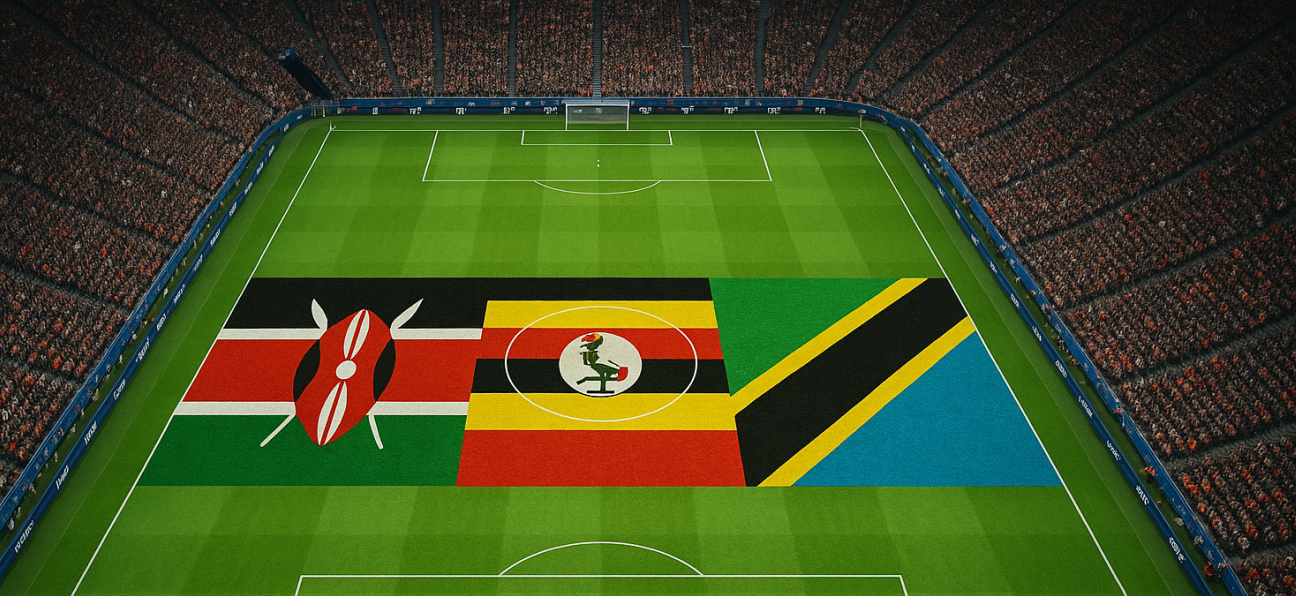
East Africa’s Pamoja Bid Reveals China’s Hidden Play on African Football
Few spectacles unite the African continent in celebration and pride quite like a major football tournament. Events like the PAMOJA initiative for the 2025 African Nations Championship (CHAN) do more than just showcase sporting excellence, they serve as a testament to the growing global stature of African football, whose top players are now among the most coveted assets for clubs the world over. This is a moment for Africans to take pride in the sport’s vibrant energy, talent pipeline, and deep cultural roots. Yet football’s enormous popular appeal also makes it an irresistible platform for global actors seeking to harness “soft power.”
Not Just A Game, But A Useful Tool
The involvement of powerful nations in sponsoring and shaping these events is rarely neutral: Russia’s investment in Olympic spectacles, Qatar’s sports-centered global public relations, and now China’s quiet but extensive hand in PAMOJA’s infrastructure all signal how rich countries use football to polish their international image and, at times, to cultivate economic influence and dependencies through lucrative contracts. Thus, while such mega-events elevate African football onto the world stage, they come entwined with complex questions about who truly wins when the final whistle blows.
Silent Partner or Quiet Handler?
China’s strategic engagement in African sports, especially football, mirrors a broader pattern of leveraging popular culture and infrastructure investments to deepen influence over the continent, paralleling tactics seen in other global arenas like Qatar’s use of football diplomacy.
The recent East Africa Pamoja bid for the 2025 African Nations Championship (CHAN) serves to select the promoters of this continental football tournament and assign the contracts for venues and infrastructures by August 2025. However, this East African collaboration vividly illustrates China’s growing but often behind-the-scenes dominance in African football. Chinese companies have secured contracts to build and renovate numerous world-class stadiums across East Africa, including key venues in Kenya, Tanzania, and Uganda, the co-hosts of the championship and all part of China’s so-called “stadium diplomacy.” This approach not only brings modern sports infrastructure but also inserts Chinese enterprises deeply into African economic and cultural spheres.
A Not-Uncommon Tactic
Like Qatar’s hosting of global sports events such as the FIFA World Cup, which earned it widespread attention and soft power projection, China leverages football as a conduit for popularity and influence across Africa. Football is uniquely positioned to emotionally engage millions, offering China a platform to build goodwill, craft positive narratives, and create dependencies through visible investments and event sponsorships. Sponsoring entertainment and infrastructure projects offers an accessible public face that masks more complex strategic objectives.
How Does Africa Benefit?
This dominance comes with significant economic and political costs for African countries. While infrastructure projects often funnel substantial funds into Chinese companies and workers, African local businesses frequently face limited opportunities to participate or benefit equitably. Chinese-led developments funnel capital, technology, and employment predominantly towards Chinese interests, potentially stifling the growth of indigenous enterprises and broader economic self-reliance.
Moreover, these investments and partnerships grant China leverage over local political and economic affairs. By controlling crucial sports venues and sponsorships, China gains soft influence over governments and public opinion, potentially swaying policymaking in ways favorable to Chinese geopolitical goals. The opacity surrounding loan terms and contractual arrangements exacerbates risks of debt dependency and reduced transparency in governance.
Masters of Geopolitics
This strategy echoes a classic divide-and-rule motif: using popular cultural platforms such as football distractions to pacify, while economic and political interests are quietly entrenched behind the scenes. In essence, football becomes not just a game but a tool for influence; capitalizing on its broad appeal to control narratives, shape public sentiment, and entrench foreign dominance.
At what end does such sports-led influence benefit African nations? While infrastructure upgrades and global sporting events can spur tourism and development, if these projects primarily channel wealth outward (leaving African competitors behind) and compromise sovereignty, the costs may outweigh the gains. Africa risks becoming a stage for external powers to exert control under the guise of friendship and development, with football a powerful but double-edged instrument in this modern game of influence.

